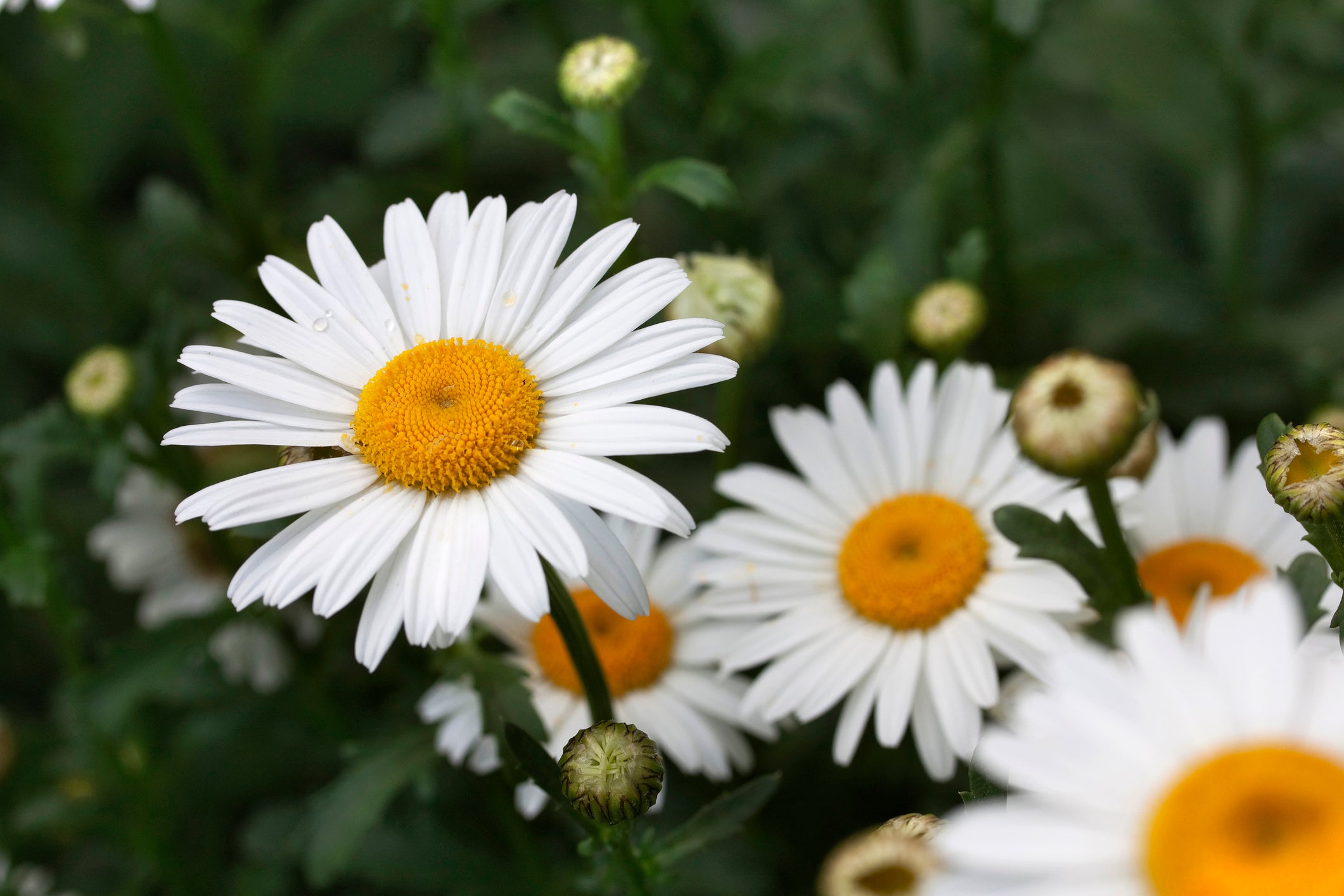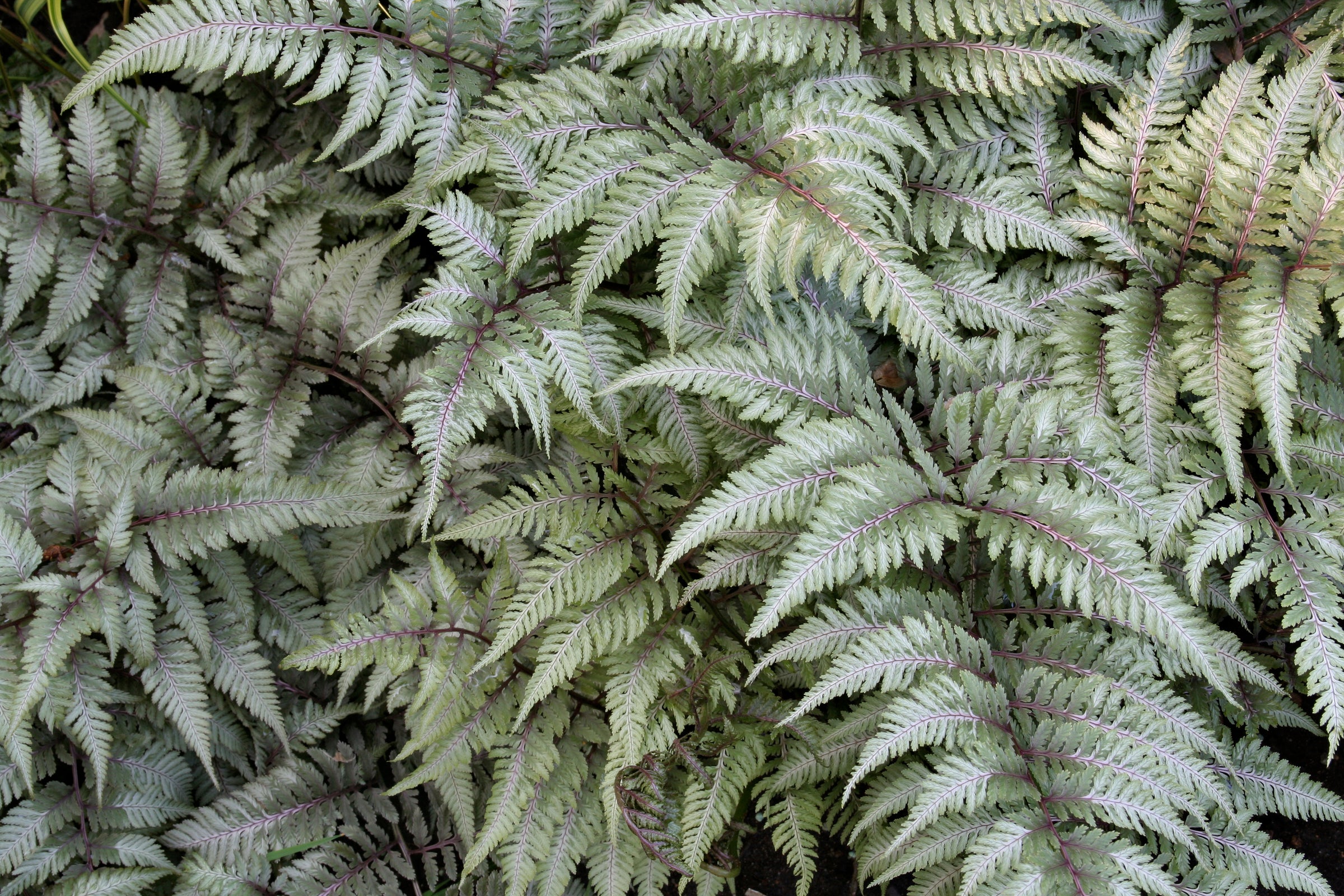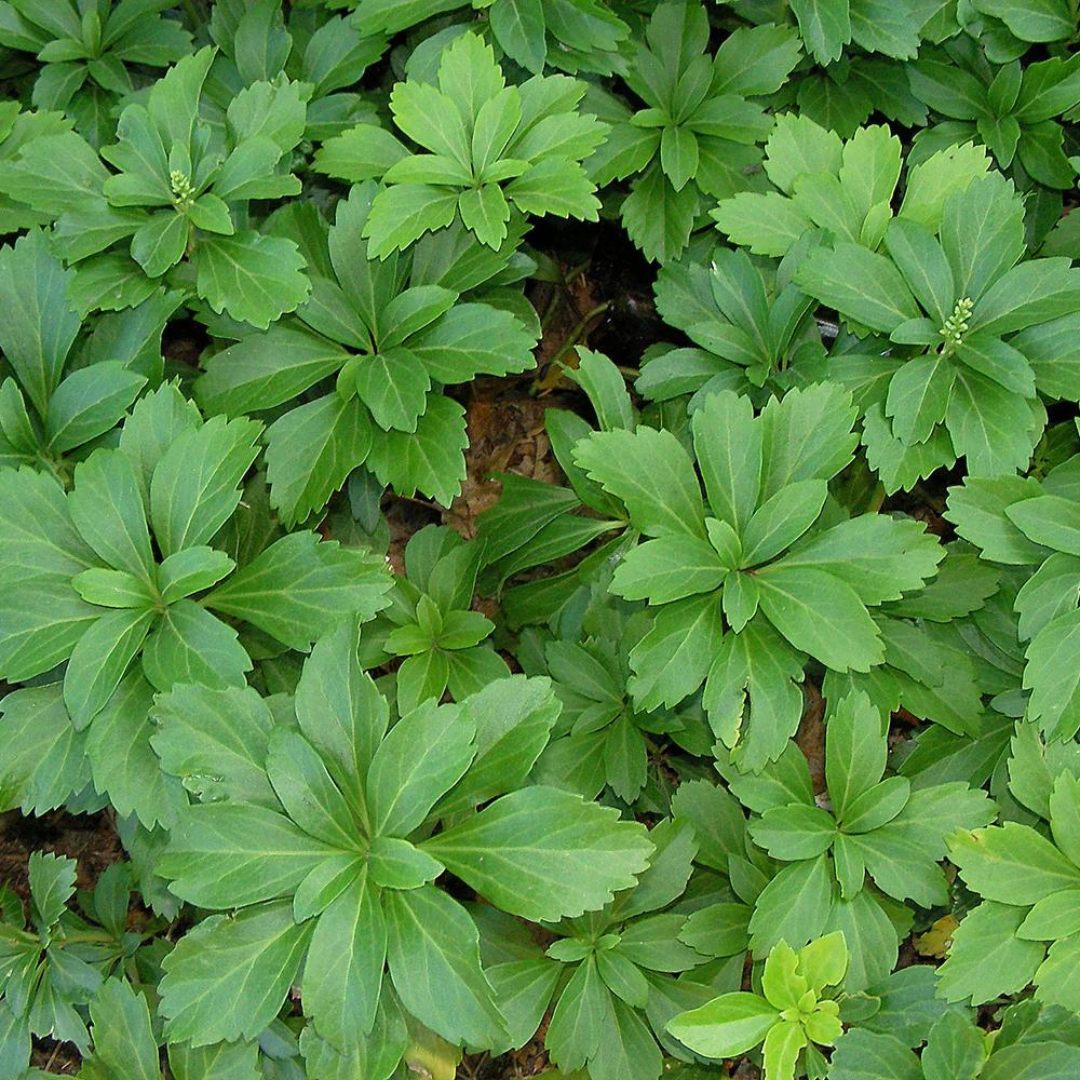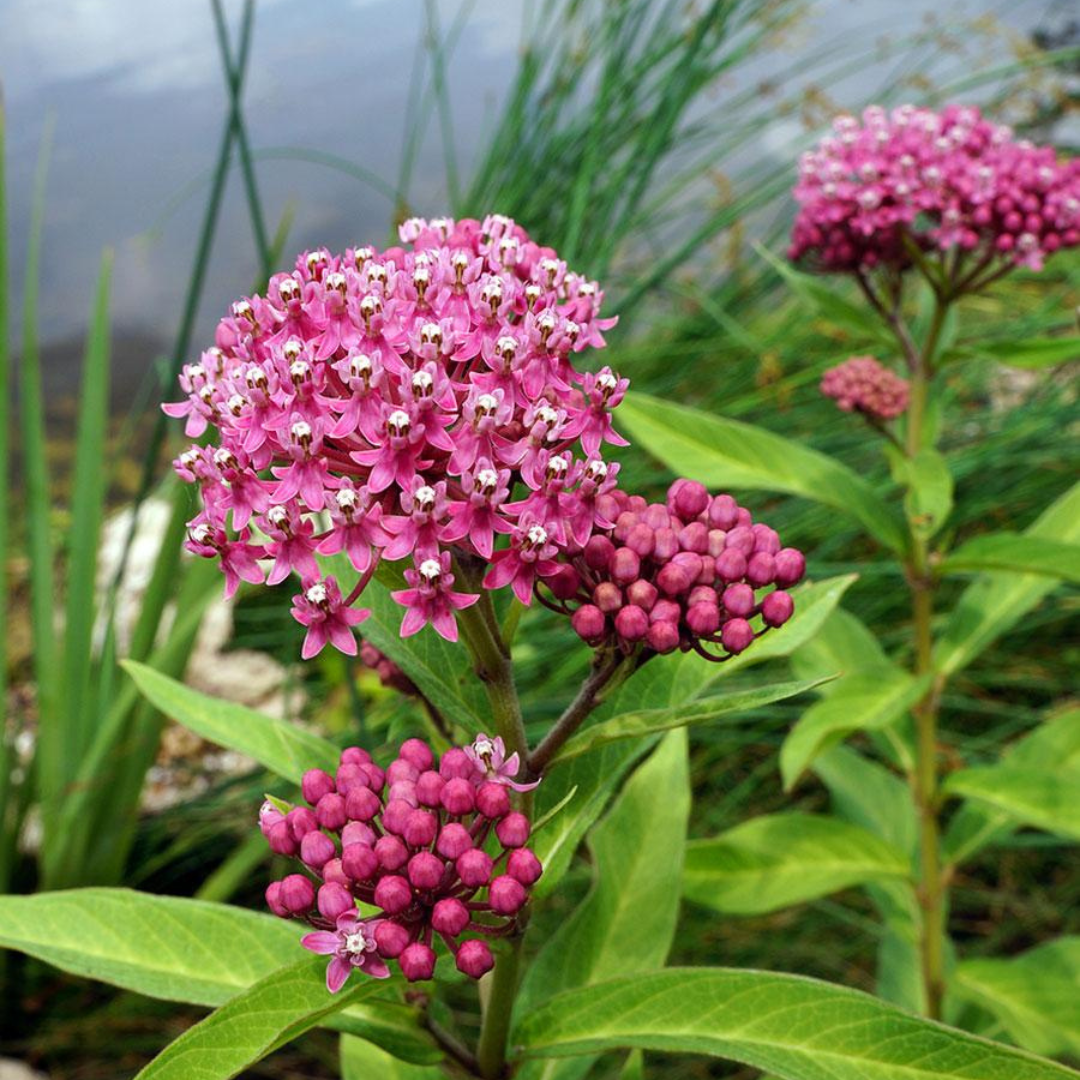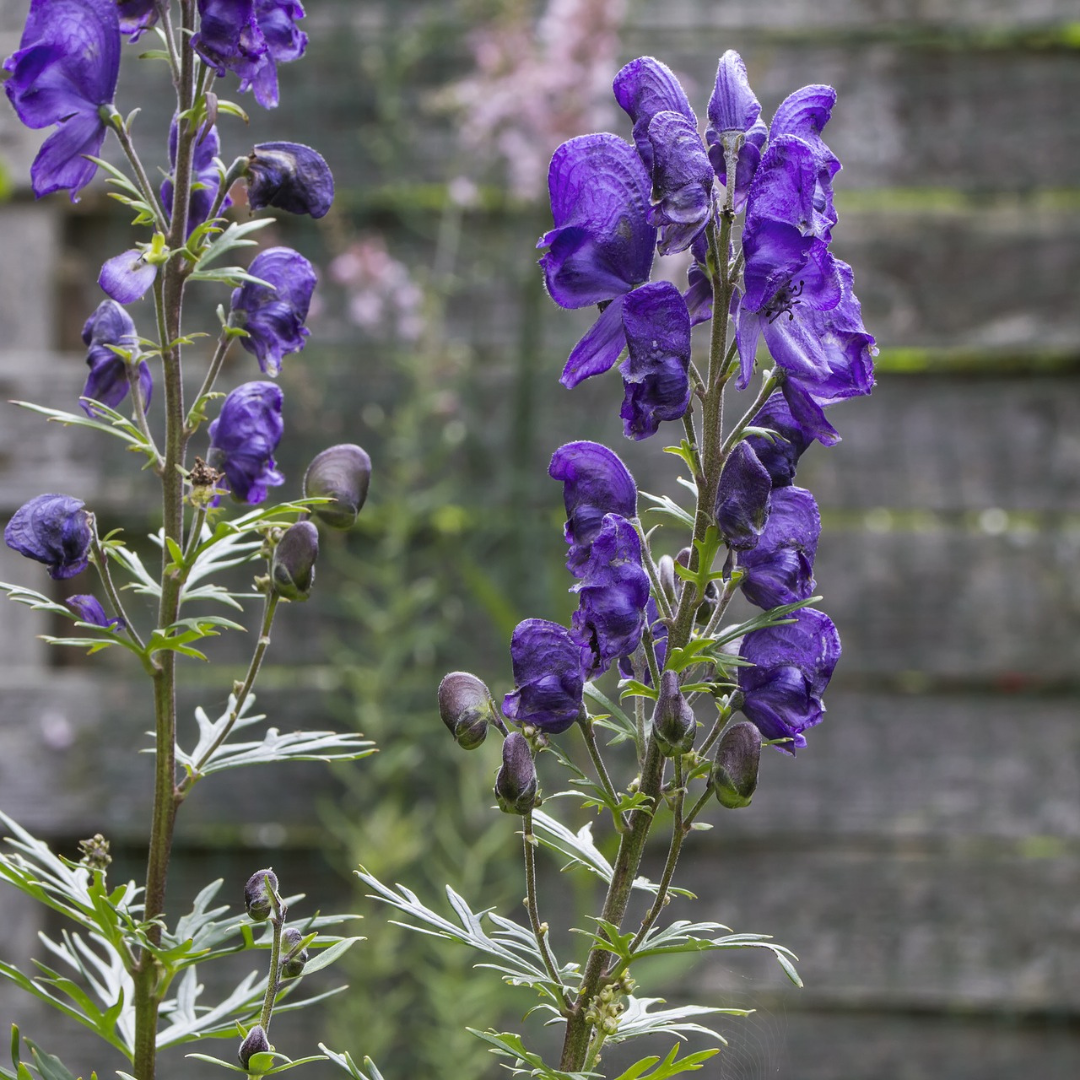
Aconitum 'Henry Spark'
Add to Wishlist Full Sun
Full Sun
 Partial Sun
Partial Sun
 Deer Resistant
Deer Resistant
 Low Maintenance
Low Maintenance
- In stock, ready to ship
- Backordered, shipping soon
Aconitum 'Henry Spark': Late-Season Colour with Regal Charm
Aconitum 'Henry Spark' lights up the late-season garden with tall spires of vivid violet-blue, hooded blooms that bring both drama and grace to the perennial border. Flowering from late summer into early fall, this refined monkshood variety adds structure, saturation, and cool contrast just when the garden begins to wind down. Its upright form and deeply cut green foliage contribute elegant texture all season, while its natural deer resistance and ease of care make it a reliable performer in sun to part-shade conditions. For late colour with a stately edge, 'Henry Spark' stands tall.
Plant Characteristics:
- Height: 90–120 cm
- Spread: 45–60 cm, forming an upright, well-behaved clump
- Flower Colour: Rich violet-blue, with hooded, monkshood-style blooms
- Flowering Period: Late summer into early fall
- Foliage: Glossy, deeply divided green leaves provide lasting texture
- Sunlight Requirements: Full sun to part shade (part shade preferred in warmer climates)
- Soil Requirements: Moist, fertile, well-drained soil; mulch to retain moisture and protect roots
Uses and Benefits: 'Henry Spark' is a striking vertical element for mixed borders, woodland edges, or cottage-style plantings. Its rich, jewel-toned flowers add impact to late-summer compositions and support pollinators at a time when blooms are fewer. Naturally deer and rabbit resistant, it thrives in gardens with browsing pressure, and its tidy, upright form fits beautifully among ornamental grasses, asters, or structural perennials.
⚠ Caution: All parts of Aconitum are highly toxic if ingested and may cause skin irritation. Always wear gloves when handling and plant away from high-traffic areas for children or pets.
Companion Plants: Pair 'Henry Spark' with Calamintha nepeta, whose airy white blooms soften the bold verticals and extend pollinator interest into fall. Add Achillea 'Terra Cotta' for a warm, earthy colour contrast and matching resilience. Complete the design with Echinacea 'PowWow White', whose clean daisy blooms echo Henry Spark’s refined presence while offering a crisp highlight in mixed compositions.
Care Instructions: Keep soil evenly moist, especially in dry conditions. Mulch to conserve moisture and keep roots cool. Provide staking in windy areas. Cut back stems after flowering or in fall to neaten appearance. Always wear gloves when pruning or dividing.
History: Aconitum 'Henry Spark' is a selection of Aconitum napellus, a European native known for its late-season bloom and ornamental form. Long intertwined with folklore, the species was historically used in both medicine and mythology, though today it is cultivated solely for its striking floral display and wildlife resistance. 'Henry Spark' stands out for its especially vivid colouring and strong, garden-worthy habit.
Final Thoughts: For a cool-toned flourish at summer’s end, Aconitum 'Henry Spark' offers drama, elegance, and pollinator support with minimal maintenance. Its rich colour and upright stance make it a natural choice for gardeners looking to extend interest and structure into the fall with a touch of regal flair.


